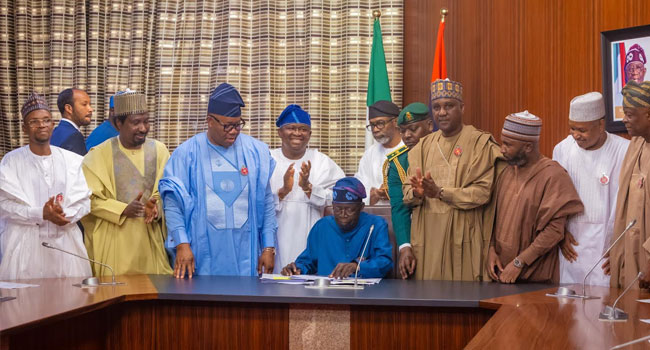The Federal Government has taken proactive steps to quell the proposed ‘hunger protest’.
Recall that, a civil society group, the Take It Back movement called for a nationwide protest against hunger and bad governance in the country.
However, top government personalities, groups, and religious bodies, including the Christian Association of Nigeria, the Muslim Student Society of Nigeria (Lagos chapter), and the Muslim Rights Concern, have called for the protest to be shelved, citing a palpable fear that it might be hijacked by infiltrators who do not mean well for the country.
Additionally, the Inspector General of Police, Kayode Egbetokun, has urged all groups planning to participate in the proposed nationwide protest to submit their details to the Commissioners of Police in their respective states.
Here are highlights of the major steps the Federal Government took to stop the protest from being held, as they considered the demonstration unnecessary while demanding time for President Tinubu to govern.
1. President Tinubu created centres across the country where Nigerians can purchase a 50kg bag of rice for N40,000.
The FG said it was one of the several initiatives by the Tinubu administration to ease living conditions for citizens.
2. Tinubu directed the Nigerian National Petroleum Company Limited to sell crude to the Dangote refinery and other upcoming refineries in naira.
The approval given by Tinubu for the sale of crude oil to the Dangote Petroleum refinery in naira is going to force the prices of domestically refined petroleum products to crash, oil marketers, refiners, and experts stated.
3. He met with governors from the All Progressives Congress, under the aegis of the Progressives Governors Forum at the Presidential Villa, Abuja, to discuss the growing calls for nationwide protests against economic hardship.
4. Although Tinubu had earlier announced that he may stop the importation of import duties on food and essential commodities, Tinubu suspended import duties to cushion the effect of the inflationary trend in Nigeria. On Monday, he removed the duties on the food importation.
5. The President held emergency meetings with prominent traditional rulers and Ulamas (Islamic religious scholars) at the Aso Rock Villa, Abuja as part of efforts by the government to ensure the planned hunger protest, slated for August 1 to 10, is averted nationwide
6. FG unveiled the Youth Internship Scheme initiated by the NDDC for 10,000 youths of the Niger Delta region and approved N50,000 monthly stipends for them.
7. The Nigerian Communications Commission has directed telecommunications operators to immediately restore all blocked phone lines due to the non-linkage of National Identification Numbers to SIM cards.
This directive was disclosed in a statement on Monday by the Director of Media and Public Affairs, Reuben Muoka.
The telecom industry regulator explained that this directive was in response to the widespread disruption caused by the blockages and to prioritise consumer convenience.
8. President Bola Tinubu, on Monday, signed the new Minimum Wage Act into law.
The brief ceremony was witnessed by the President of the Senate, Godswill Akpabio, Deputy Senate President, Barau Jibrin, and the House Leader, Prof. Julius Ihonvberem, who represented the Speaker of the House of Representatives, Tajudeen Abbas.
Credit: Punch Online
